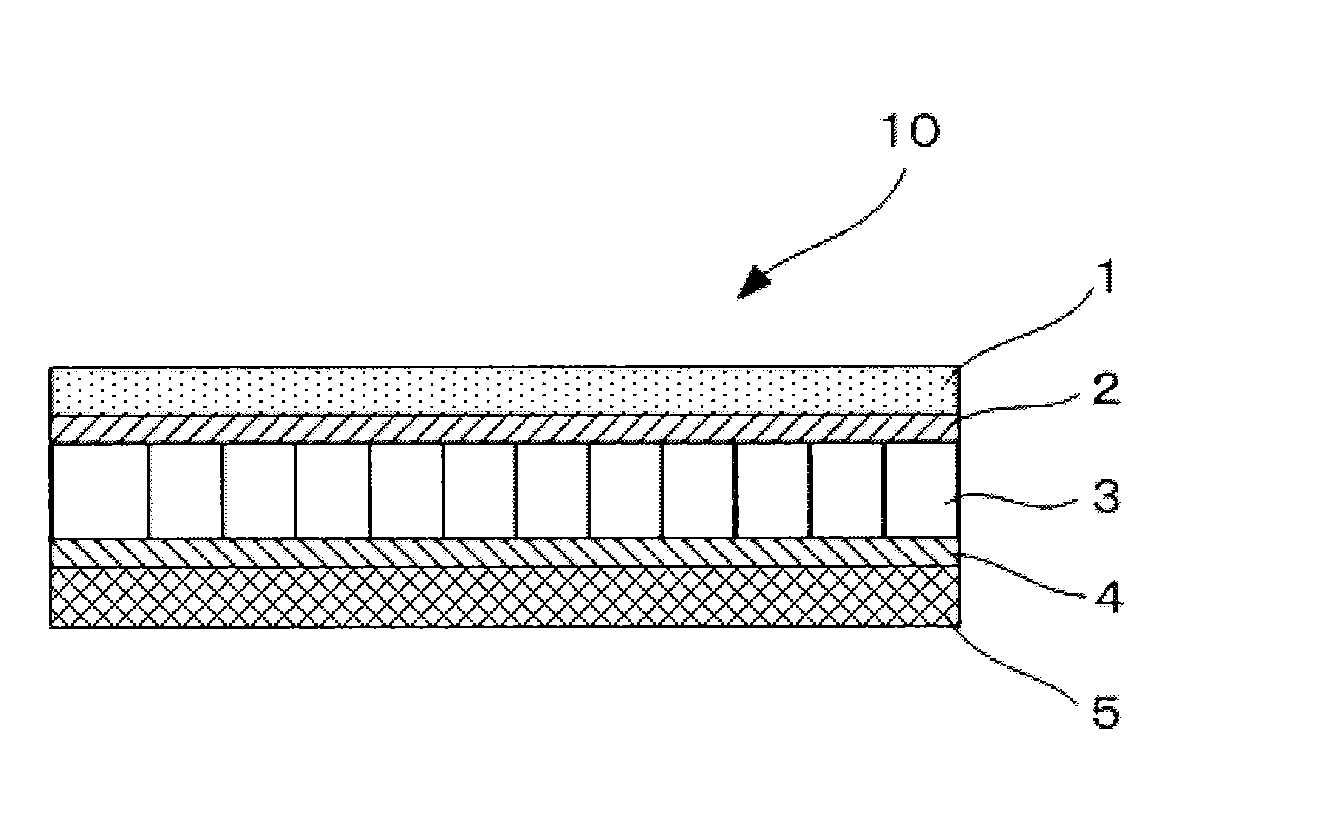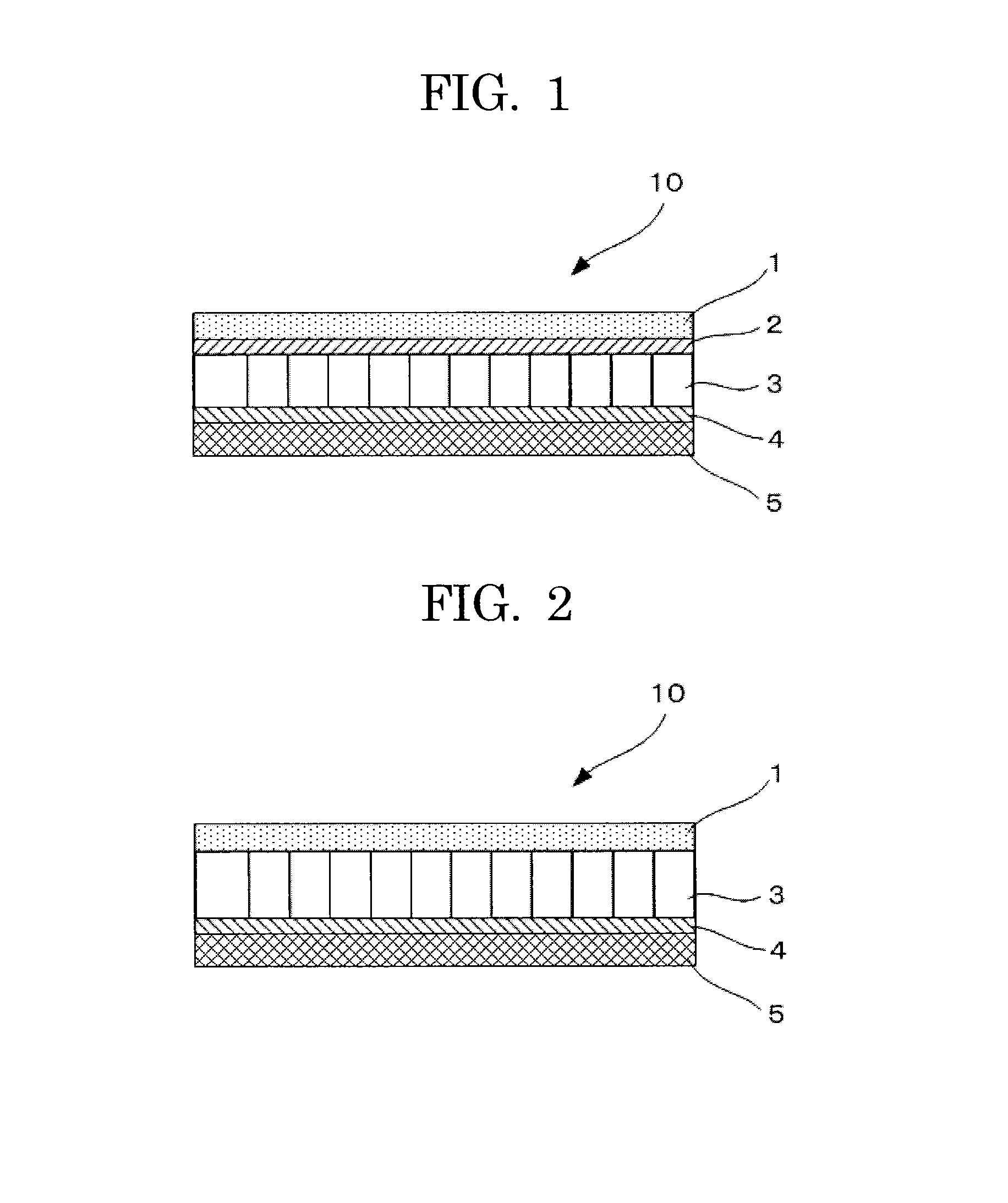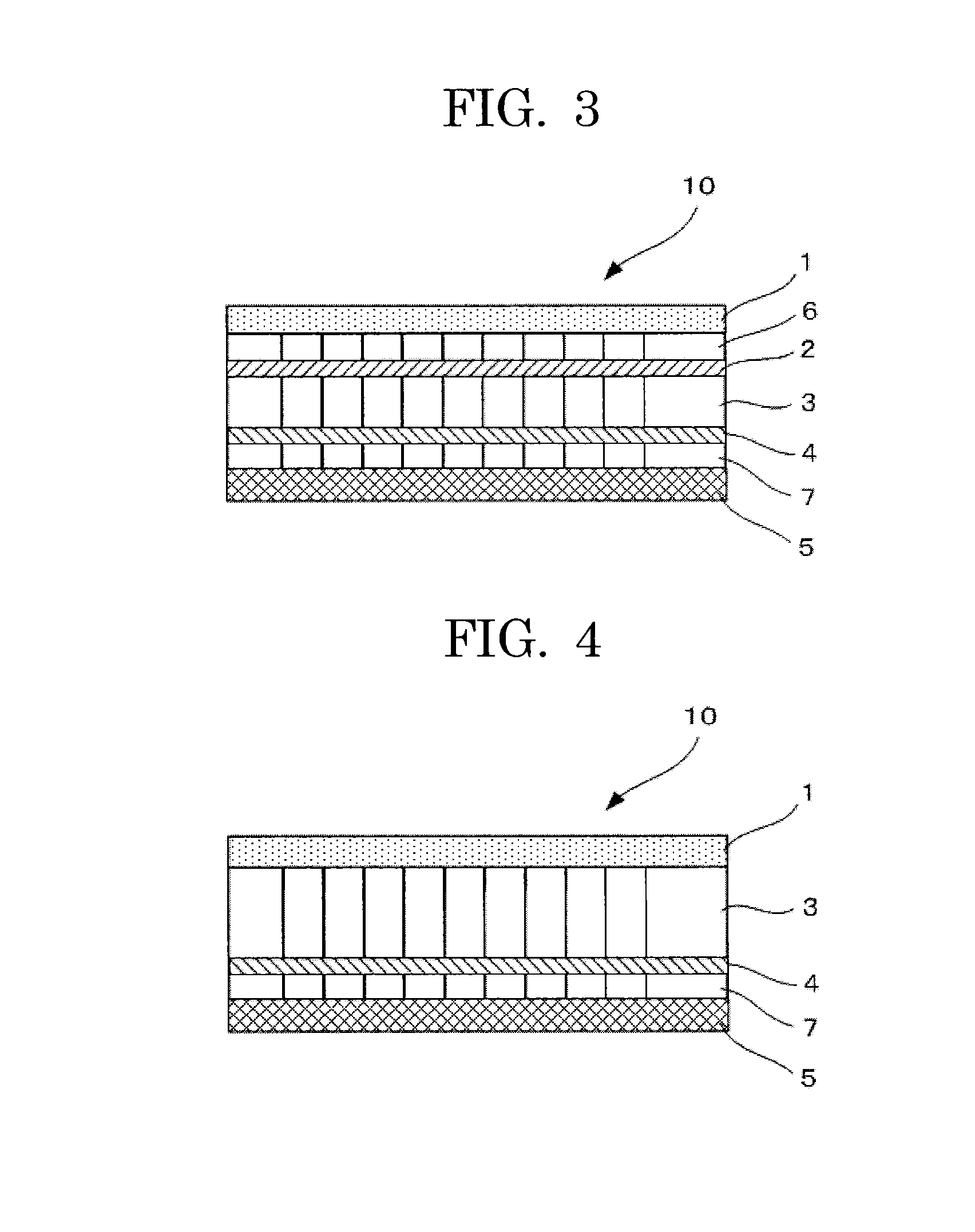Non-aqueous electrolyte storage element
a technology of electrolyte storage element and non-aqueous electrolyte, which is applied in the manufacture of final products, sustainable manufacturing/processing, electrochemical generators, etc., can solve the problems of reducing the power density of the cell, and achieve the effect of improving the gravimetric energy density and high discharge capacity
- Summary
- Abstract
- Description
- Claims
- Application Information
AI Technical Summary
Benefits of technology
Problems solved by technology
Method used
Image
Examples
example 1
Preparation of Positive Electrode>
[0117]Carbon powder (KS-6, manufactured by TIMCAL Ltd.) was used as a positive-electrode active material. The carbon powder had a BET specific surface area by nitrogen adsorption of 20 m2 / g and an average particle diameter (median diameter) measured by a laser-diffraction particle-size analyzer (SALD-2200, manufactured by Shimadzu Corporation) of 3.4 μm.
[0118]First, 5 mL of water was added to 10 mg of the carbon powder (KS-6, manufactured by TIMCAL Ltd.), 10 mg of a binder (a 3-% by mass aqueous solution of carboxymethylcellulose (CMC)) and 10 mg of a conductive agent (breakdown: 95% by mass of acetylene black and 5% by mass of polytetrafluoroethylene) followed by kneading, and a slurry was prepared. Then, this was crimped to a stainless steel mesh and vacuum dried at 200° C. for 4 hours, and thereby a positive electrode was formed. At this time, the carbon powder (graphite) in the positive electrode crimped to the stainless steel mesh had a mass of...
example 2
[0130]A non-aqueous electrolyte storage element 10 of a semi-open cell type of Example 2 was prepared as illustrated in FIG. 2 in the same manner as Example 1 except that the anion-exchange membrane of Example 1 was not disposed. In the non-aqueous electrolyte storage element 10 of Example 2 thus prepared, a positive electrode 1 was directly in contact with a first separator 3, and further the first separator 3 was in contact with a negative electrode 5 via a cation-exchange membrane 4. Here, an outer can and an electrode lead wire of the non-aqueous electrolyte storage element 10 are not illustrated in FIG. 2.
[0131]Next, the non-aqueous electrolyte storage element of Example 2 thus prepared was measured for a discharged capacity at the beginning and after charging and discharging 100 times in the same manner as Example 1. The discharged capacity at the beginning was 120 mAh / g of positive electrode, and the discharged capacity after charging and discharging 100 times was 80 mAh / g of...
example 3
Second Separator
[0133]A laboratory filter paper (GA-100 GLASS FIBER FILTER, manufactured by Advantec Group) was prepared as a second separator.
[0134]Using the positive electrode, the negative electrode, the first separator in which 200 mg of solid LiPF6 powder was kneaded, the anion-exchange membrane and the cation-exchange membrane prepared in the same manner as Example 1, and the second separator, a non-aqueous electrolyte storage element of a semi-open cell type of Example 3 was prepared in an argon dry box as illustrated in FIG. 3 was prepared in the same manner as Example 1. In the non-aqueous electrolyte storage element 10 of FIG. 3, a positive electrode 1 was in contact with an anion-exchange membrane 2 via a second separator 6, and the anion-exchange membrane 2 was in contact with a first separator 3. Further, the first separator 3 was in contact with a second separator 7 via a cation-exchange membrane 4, and the second separator 7 was in contact with a negative electrode 5....
PUM
| Property | Measurement | Unit |
|---|---|---|
| discharge voltage | aaaaa | aaaaa |
| energy density | aaaaa | aaaaa |
| gravimetric energy density | aaaaa | aaaaa |
Abstract
Description
Claims
Application Information
 Login to View More
Login to View More - R&D
- Intellectual Property
- Life Sciences
- Materials
- Tech Scout
- Unparalleled Data Quality
- Higher Quality Content
- 60% Fewer Hallucinations
Browse by: Latest US Patents, China's latest patents, Technical Efficacy Thesaurus, Application Domain, Technology Topic, Popular Technical Reports.
© 2025 PatSnap. All rights reserved.Legal|Privacy policy|Modern Slavery Act Transparency Statement|Sitemap|About US| Contact US: help@patsnap.com



